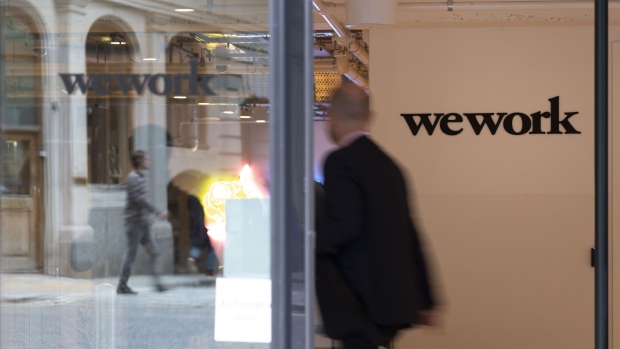US Pending Home Sales Jump in March to Hit Highest in Year
Pending sales of existing US homes in March reached their highest levels in a year in spite of persistently high borrowing costs and a low supply.
Latest Videos
The information you requested is not available at this time, please check back again soon.
Pending sales of existing US homes in March reached their highest levels in a year in spite of persistently high borrowing costs and a low supply.
Blackstone Inc. agreed to sell a student-housing portfolio to KKR & Co. for $1.64 billion.

Whirlpool Corp., the owner of the Maytag and Amana appliance brands, is cutting about 1,000 salaried positions worldwide to reduce costs as slow US home sales limit demand.
Politicians are desperate for developers in Vancouver to build more homes to alleviate pressure in one of the continent’s most expensive real estate markets. There’s just one problem — not enough buyers are showing up.
Creditors to Adler Group SA are set to take control of the company after the embattled landlord struggled to sell assets and repay debts against the backdrop of plunging prices.
May 28, 2020
, Bloomberg News

(Bloomberg) -- WeWork was accused in a lawsuit of reneging on a pledge to invest $450 million in a San Francisco development project that was supposed to showcase the WeLive communal living initiative.
Parkmerced Investors LLC sued the troubled co-working startup Thursday in New York state court, saying it abandoned a promise to help build WeWork-designed apartments and communal living space with media rooms, hot tubs and activities such as happy hours and yoga classes. Parkmerced Investors is seeking at least $100 million in damages.
The sprawling Parkmerced neighborhood, flanked by a lake and the San Francisco Golf Club, dates back to the 1940s and now offers high-rise apartments and town homes spread across 150 acres. Over the years, the complex has had backing from high-profile investors including the late real-estate billionaire Harry Helmsley and Fortress Investment Group.
The lawsuit comes after WeWork sued Parkmerced Investors in March in the same New York court, claiming it didn’t meet financing conditions for the deal and refused to return a $20 million exclusivity fee to complete the equity investment in the project.
WeWork’s financial and legal woes have mounted in recent months following suits over its botched initial public offering plans and an alleged $1.7 billion buyout to its co-founder and former CEO Adam Neumann.
Read More: A Brief History of WeWork, the Flying Startup Facing Turbulence
Neumann approached Parkmerced’s lead developer Maximus Real Estate Partners in 2015, claiming WeWork “would one day “be bigger than Apple,’”and insisting that the Parkmerced investment “had to be mine,” according to Thursday’s breach-of-contract complaint. In 2018, an agreement was reached for WeWork to pay $275 million at closing and $175 million 180 days later, but the company backed out, according to Parkmerced Investors.
After the deal fell through, the Parkmerced project lost a year closing on another investment transaction and incurred millions of dollars in loan interest fees, out-of-pocket expenses and other costs, according to the complaint. Parkmerced Investors claims in its suit that the exclusivity fee was non-refundable.
WeWork declined to comment on the suit.
©2020 Bloomberg L.P.